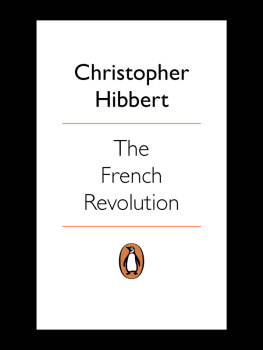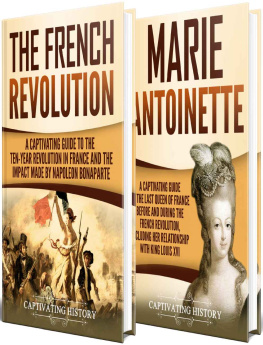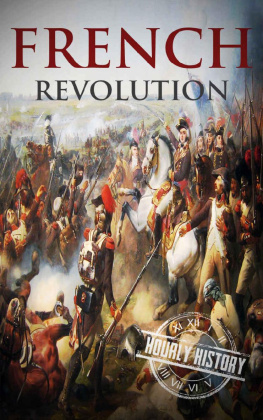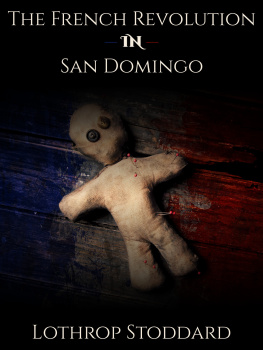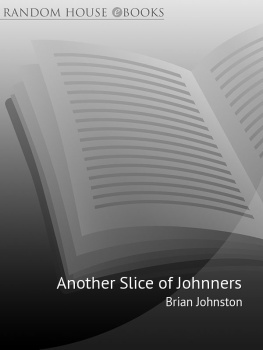PREFACE
Table of Contents
The object of this book is similar to that with which, a few years ago, I wrote a short biography of Napoleon. The main outlines of the Revolution, the proportion and relation of things, tend to become obscured under the accumulation of historical detail that is now proceeding. This is an attempt, therefore, to disentangle from the mass of details the shape, the movement, the significance of this great historical cataclysm. To keep the outline clear I have deliberately avoided mentioning the names of many subordinate actors; thinking that if nothing essential was connected with them the mention of their names would only tend to confuse matters. Similarly with incidents, I have omitted a few, such as the troubles at Avignon, and changed the emphasis on others, judging freely their importance and not following the footsteps of my predecessors, as in the case of the capture of the Bastille, the importance of which was vastly exaggerated by early writers on the subject.
The end of the Revolution I place at Brumaireas good a date as any, though like all others, open to criticism. The present narrative, however, will be found to merge into that of my Napoleon, which forms its natural continuation after that date.
CAMBRIDGE, MASS., Feb., 1909.
THE FRENCH REVOLUTION
Table of Contents
CHAPTER I
Table of Contents
THE PERSPECTIVE OF THE FRENCH REVOLUTION
Table of Contents
The magnitude of an event is too apt to lie with its reporter, and the reporter often fails in his sense of historical proportion. The nearer he is to the event the more authority he has as a witness, but the less authority as a judge. It is time alone can establish the relation and harmony of things. This is notably the case with the greatest event of modern European history, the French Revolution, and the first task of the historian writing a century later, is to attempt to catch its perspective. To do this the simplest course will be to see how the Revolution has been interpreted from the moment of its close to the present day.
It was Madame de Stal, under the influence of Constant, who first made Europe listen to reason after the Bourbon restoration of 1815. {2} Her Considrations sur la Rvolution francaise, published in 1818, one year after her death, was a bold though temperate plea for the cause of political liberty. At a moment of reaction when the Holy Alliance proclaimed the fraternity not of men but of monarchs, and the direct delegation by Divine Providence of its essential virtues to Alexander, Frederick William and Francisat a moment when the men of the Convention were proscribed as regicides, when the word Jacobin sent a thrill of horror down every respectable spinal chord, the daughter of Necker raised her voice to say that if, during the stormy years just passed, the people of France had done nothing but stumble from crime to folly and from folly to crime, the fault did not, after all, lie with them, but with the old rgime. If Frenchmen had failed to show the virtues of freemen, it was because they had for so many centuries been treated as slaves. This was in 1818, three years after Waterloo.
Madame de Stal was a pamphleteer; the historians soon followed. Thiers in 1823, Mignet in 1824, produced the first important histories of the Revolution; the former more eloquent, more popular; the latter more ballasted with documentary evidence, more {3} accurate, more pedestrian, in fact, to this day, in its negative manner, one of the best general histories of the matter. Both of these writers were too near their subject and too hampered by the reactionary surroundings of the moment to be successful when dealing with the larger questions the French Revolution involved. Thiers, going a step beyond Madame de Stal, fastened eagerly on the heroic aspects of his subject. It was with this emphasis that later, under the more liberal rgime of Louis Philippe, he continued his work through the epoch of Napoleon and produced his immensely popular but extremely unsound history of the Consulate and the Empire. In 1840 the remains of Napoleon were transferred from St. Helena to Paris, and were processionally drawn to the Invalides surrounded by the striking figures and uniforms of a handful of surviving veterans, acclaimed by the ringing rhetoric of Victor Hugo, who in prose and in verse vividly formulated the Napoleonic legend. And just before and just after this event, so made to strike the imagination and to prepare changes of opinion, came a series of notable books. They were all similar in that they bore the stamp of the romanticism of the thirties and forties, interpreting history in terms of the {4} individual; but they differed in their political bias. These works were written by Carlyle, Louis Blanc, Lamartine and Michelet.
Carlyle's French Revolution belongs far more to the domain of literature than to that of history. Its brilliancy may still dazzle those who are able to think of Carlyle as no more than the literary artist; it will not blind those who see foremost in him the great humanitarian. He was too impulsive an artist to resist the high lights of his subject, and was hypnotized by Versailles and the guillotine just as his contemporary Turner was by the glories of flaming sunsets and tumbling waves. The book is a magnificent quest for an unfindable hero, but it is not the French Revolution.
Carlyle's French contemporaries add the note of the party man to his individualistic impressionism, and all three are strong apologists of the Revolution. Lamartine extols the Girondins; Blanc sanctifies Robespierre, whom he mistakes for an apostle of socialism; Michelet, as enthusiastic as either, but larger in his views and much more profound as a scholar, sees the Revolution as a whole and hails in it the regeneration of humanity. Within a few days of the publication of his {5} first volumes, France had risen in revolution once more and had proclaimed the Second Republic. She then, in the space of a few months, passed through all the phases of political thought which Thiers, Blanc, Lamartine and Michelet had glorifiedthe democratic, the bourgeois, the autocratic republic, and finally the relapse into the empirethe empire of Louis Napoleon.
And, essentially, the histories of the Revolution produced by these writers were special pleadings for a defeated cause, springing up in the year 1848 to a new assertion. Under the Second Empire, with autocracy even more triumphant than under the brothers of Louis XVI, they became the gospels of the recalcitrant liberalism of France; Michelet the gospel of the intellectuals, Blanc the gospel of the proletarians. De Tocqueville added his voice to theirs, his Ancien Rgime appearing in 1856. Then came 1870, the fall of the Empire, and 1871, the struggle between the middle class republic of Thiers, and the proletarian republic of Paris. The latter, vanquished once more, disappeared in a nightmare of assassination and incendiarism.
It was under the impression of this disaster that Taine set to work to investigate the past {6} of his country, and particularly the great Revolution on which all else appeared to be founded. Between 1875 and 1894 he produced his Origines de la France Contemporaine, which in a sense supplanted all previous works on the Revolution. Behind it could be plainly perceived a huge scaffolding of erudite labour, and the working of an intellect of abnormal power; but what was not so apparent, and is now only being slowly recognised, was that much of this erudition was hasty and inspired by preconceived opinions, and that Taine's genius was more philosophic than historic. Assuming the validity of the impressions he had formed when witnessing the agony of Paris in the spring of 1871, his history of the Revolution was a powerful and brilliant vindication of those impressions. But it is only the philosopher who forms his opinions before considering the facts, the historian instinctively reverses the order of these phenomena. As it was, Taine's great work made a tremendous impact on the intellect of his generation, and nearly all that has been written on the Revolution since his day is marked with his mark. His thesis was that the Church and the State were the great institutions whereby brute man had acquired his small share of justice and {7} reason, and that to hack at the root of both State and Church was fatal; it could only lead to the dictatorship of the soldier or to that of the mob. Of these two evils the former appeared to him the less, while the latter he could only think of in terms of folly and outrage. Taine's conservatism was the reaction of opinion against the violence of the Commune and the weak beginnings of the Third Republic, as Michelet's liberalism had been its reaction against Orleanist and Bonapartist middle class and military dictation.






